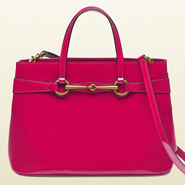- About
- Subscribe Now
- New York,
May 20, 2013

Small business owners with a household income of at least $250,000 are more likely to buy luxury products and services than their non-business-owning counterparts, according to new research from the Shullman Research Center.
The new "Small Business Ownership & Luxury Pulse” report found that 66 percent of business owners with a household income of at least $250,000 are very optimistic or optimistic about their business over the next year, while 39 percent of these respondents are very optimistic or optimistic about the U.S. economy. Sixty-three percent of business owners, compared to 54 percent of non-business owners, bought luxury products or services in past year and 42 percent plan to buy over the next year.
“Small business owners have control of their own lives,” said Bob Shullman, founder/CEO of the Shullman Research Center, New York. “They own their own business, are not necessarily working or reporting to other people and they have some control over their own destinies.
“I was surprised that they are more inclined to buy luxury than their income equivalents in the marketplace,” he said.
The Shullman Research Center conducted the March Preview Wave survey online among three income samples in the United States – the top 39 percent of adults with household incomes of $75,000 or more, the top 3 percent of adults with household incomes of $250,000 or more and the top 1 percent of adults with household incomes of $500,000 or more.
The results pertaining to business ownership were calculated from the March 2013 responses of adult consumers with household incomes of $250,000.
Owner profile
The likelihood that a consumer is also a business owner increases with income level.
Four in 10 U.S. consumers with a household income of $500,000 or more are business owners, partners or have an ownership share in a business.
But one-sixth of all U.S. consumers and one-fifth of those with household incomes of $75,000 or more are involved in their own business in the same capacities.
Among business owners with household incomes of $250,000 or more, half work full-time in the business, 34 percent work part-time in the business and 16 percent act solely as an investor.
Business owners' household incomes are increasing as the size of the businesses does.
The median gross sales or revenues of small businesses, according to their owners, is $1 million among owners with household incomes of $250,000 or more and $7.6 million among owners with household incomes of $500,000 or more.
Half of business owners with household incomes of $250,000 or more have gross sales or revenues of under $1 million, while 45 percent of business owners with household incomes of at least $500,000 gross $10 million or more.
Selective optimists
Seventy percent of business owners with household incomes of $500,000 or more are very optimistic or optimistic about their business, as are 66 percent of owners with household incomes of $250,000 or more and 74 percent of owners with household incomes of $75,000 or more.
Specifically, 49 percent of business owners with household incomes of $500,000 or more are very optimistic about their business.
Though affluent business owners are not as optimistic about the U.S. economy as they are about their own businesses, they are somewhat more optimistic than non-business owners.
Fifty-two percent of business owners with household incomes of $250,000 or more believe that the U.S. economy is doing better today than the year-ago period and 40 percent of non-business owners believe the same.
Also, 39 percent of business owners with household incomes of $250,000 or more are very optimistic or optimistic about the U.S. economy 12 months from now compared to 32 percent of non-business owners.
More notable could be the difference in personal financial satisfaction among affluent business owners and affluent non-business owners.
Eighty-six percent of business owners with household incomes of $250,000 or more are very satisfied or satisfied with their personal financial situation, while 65 percent of non-business owners in the same income level have the same level of satisfaction with their personal finances.
Thirty-seven percent of these business owners are very satisfied with their personal financial situation compared to 28 percent of non-business owners.
Also, 80 percent of business owners with household incomes of $250,000 or more believe that they will definitely or most likely be better off financially one year from now, while 67 percent of non-business owners in the same income group believe the same.
Where luxury comes in
Luxury marketers may not have previously considered small business owners in the U.S. to be a target group, per Mr. Shullman.
But, according to the report, affluent business owners compared to non-business owners in the same income group purchase luxury more often and spend more.
Sixty-three percent of business owners with household incomes of $250,000 or more bought luxury products or services in past year, compared to 54 percent of non-business owners in the same income group.
Twenty-four percent of these business owners bought luxury products or services five or more times in the past year, compared to 15 percent of non-business owners.
Twenty-four percent of affluent business owners also spent $2,000 or more on luxury in the past year, while 13 percent of non-business owners reported the same.
The average amount spent on luxury in the past year among affluent business owners was $19,900, while affluent non-business owners spent $11,500.
Forty-two percent of business owners with household incomes of $250,000 or more said that they will definitely buy luxury products or services in the next year, as will 31 percent of non-business owners in the same income group.
“Business owners are clearly more inclined than their non-business owner equivalents [to purchase luxury,]” Mr. Shullman said.
“When they buy luxuries, they buy more frequently,” he said. “This suggests that it’s a way to get to a luxury brand’s prospects through this group.”
Final Take
Tricia Carr, associate reporter on Luxury Daily, New York
Share your thoughts. Click here